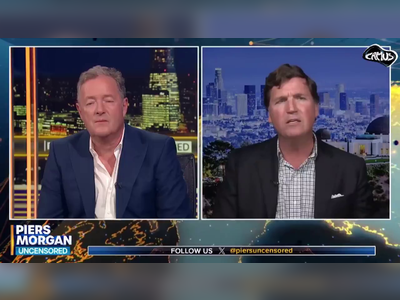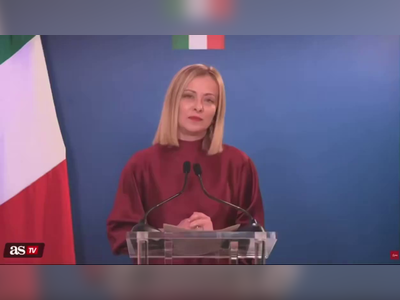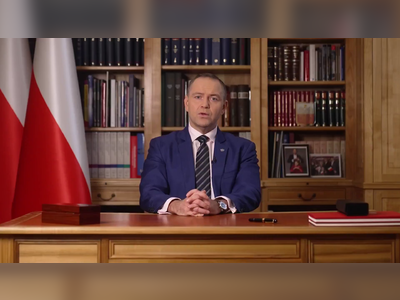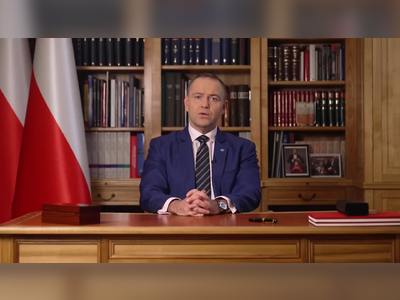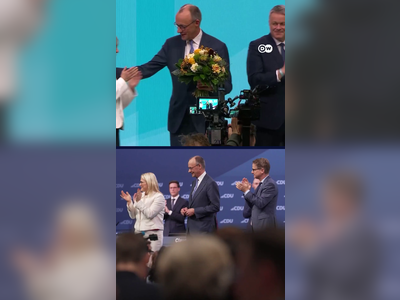Germany’s Record €20 Billion Defense Spending: A Strategic Necessity or Economic Gamble?
Germany’s decision to approve a record defense budget comes at a time of economic challenges, raising questions about the balance between security and domestic priorities.
Germany has approved a record €20 billion defense package, which includes advanced military assets such as submarines, missile defense systems, and state-of-the-art military technology.
The decision to significantly ramp up defense spending has raised eyebrows, particularly in light of the country’s current economic challenges, including rising inflation, a growing energy crisis, and unemployment concerns.
The question that arises is whether this focus on defense spending is in Germany's best interests given its struggling economy.
On the surface, the move seems a logical response to the geopolitical tensions in Europe, particularly the ongoing conflict in Ukraine.
Germany’s investment in military assets is seen as a necessary step to strengthen NATO’s deterrence capabilities and safeguard European security.
The strategic importance of bolstering defense capabilities in the face of rising threats from Russia is undeniable.
However, this raises a deeper question: is Germany’s decision driven purely by genuine security concerns, or is it more about asserting its power and influence on the global stage?
Pressure from Washington has played a significant role in Germany’s decision to increase its defense spending, pushing the country to meet NATO’s defense spending target of two percent of GDP. The scale of Germany's military investment also signals its desire to maintain a strong position in the international arena.
But the timing of the defense package raises concerns.
Germany is still recovering from the long-term consequences of its over-reliance on Russian energy supplies, and critical sectors like manufacturing and services are facing stagnation.
At a time when the country's economic recovery is fragile, focusing billions on military spending—much of which will not be operational for years—seems to risk neglecting domestic economic vulnerabilities.
Despite these concerns, there are arguments to be made for the long-term benefits of such a substantial defense investment.
The geopolitical landscape in Europe has shifted significantly since the Russian invasion of Ukraine, and ensuring national security and stability may be seen as a strategic priority.
The long-term stability of Germany’s economy could be enhanced by strengthening its role as a European defense powerhouse.
Additionally, the procurement of military assets, such as the submarines to be built by Thyssenkrupp, could stimulate economic activity and create jobs in the defense sector.
These investments may also foster innovation, which could have broader economic benefits beyond the military sector.
However, the short-term consequences of this military spending cannot be overlooked.
The German public is already grappling with rising costs of living, including higher energy prices and inflation.
If these defense expenditures come at the expense of public services or social security, public trust in the government could be undermined.
Protests and social unrest over economic issues have already escalated in Germany, and a focus on military spending could alienate citizens who are struggling to make ends meet.
Furthermore, this massive investment in defense could strain Germany’s relationships with other European Union countries.
While some see the strengthening of Germany’s military as a positive step for European security, others may view it as part of a broader power struggle within the EU.
Tensions over defense policies could lead to diplomatic challenges and further exacerbate divisions within the union.
The real challenge for Germany lies in balancing its military ambitions with the need to stabilize and strengthen its economy.
As the country maneuvers through these turbulent times, finding a way to protect national security while investing in domestic infrastructure, welfare, and social stability will be key.
The government will need to be careful not to prioritize defense at the expense of economic growth and social cohesion.
Ultimately, Germany’s decision to allocate €20 billion for defense marks a pivotal moment in the country’s strategy.
The coming months will be crucial in determining whether this bold move will pay off, or whether it will leave the country facing greater economic risks.
As the world watches Germany’s balancing act between military spending and economic recovery, it will serve as a test case for how nations navigate their security needs without neglecting the domestic challenges that underpin long-term stability and prosperity.
The decision to significantly ramp up defense spending has raised eyebrows, particularly in light of the country’s current economic challenges, including rising inflation, a growing energy crisis, and unemployment concerns.
The question that arises is whether this focus on defense spending is in Germany's best interests given its struggling economy.
On the surface, the move seems a logical response to the geopolitical tensions in Europe, particularly the ongoing conflict in Ukraine.
Germany’s investment in military assets is seen as a necessary step to strengthen NATO’s deterrence capabilities and safeguard European security.
The strategic importance of bolstering defense capabilities in the face of rising threats from Russia is undeniable.
However, this raises a deeper question: is Germany’s decision driven purely by genuine security concerns, or is it more about asserting its power and influence on the global stage?
Pressure from Washington has played a significant role in Germany’s decision to increase its defense spending, pushing the country to meet NATO’s defense spending target of two percent of GDP. The scale of Germany's military investment also signals its desire to maintain a strong position in the international arena.
But the timing of the defense package raises concerns.
Germany is still recovering from the long-term consequences of its over-reliance on Russian energy supplies, and critical sectors like manufacturing and services are facing stagnation.
At a time when the country's economic recovery is fragile, focusing billions on military spending—much of which will not be operational for years—seems to risk neglecting domestic economic vulnerabilities.
Despite these concerns, there are arguments to be made for the long-term benefits of such a substantial defense investment.
The geopolitical landscape in Europe has shifted significantly since the Russian invasion of Ukraine, and ensuring national security and stability may be seen as a strategic priority.
The long-term stability of Germany’s economy could be enhanced by strengthening its role as a European defense powerhouse.
Additionally, the procurement of military assets, such as the submarines to be built by Thyssenkrupp, could stimulate economic activity and create jobs in the defense sector.
These investments may also foster innovation, which could have broader economic benefits beyond the military sector.
However, the short-term consequences of this military spending cannot be overlooked.
The German public is already grappling with rising costs of living, including higher energy prices and inflation.
If these defense expenditures come at the expense of public services or social security, public trust in the government could be undermined.
Protests and social unrest over economic issues have already escalated in Germany, and a focus on military spending could alienate citizens who are struggling to make ends meet.
Furthermore, this massive investment in defense could strain Germany’s relationships with other European Union countries.
While some see the strengthening of Germany’s military as a positive step for European security, others may view it as part of a broader power struggle within the EU.
Tensions over defense policies could lead to diplomatic challenges and further exacerbate divisions within the union.
The real challenge for Germany lies in balancing its military ambitions with the need to stabilize and strengthen its economy.
As the country maneuvers through these turbulent times, finding a way to protect national security while investing in domestic infrastructure, welfare, and social stability will be key.
The government will need to be careful not to prioritize defense at the expense of economic growth and social cohesion.
Ultimately, Germany’s decision to allocate €20 billion for defense marks a pivotal moment in the country’s strategy.
The coming months will be crucial in determining whether this bold move will pay off, or whether it will leave the country facing greater economic risks.
As the world watches Germany’s balancing act between military spending and economic recovery, it will serve as a test case for how nations navigate their security needs without neglecting the domestic challenges that underpin long-term stability and prosperity.
Translation:
Translated by AI
AI Disclaimer: An advanced artificial intelligence (AI) system generated the content of this page on its own. This innovative technology conducts extensive research from a variety of reliable sources, performs rigorous fact-checking and verification, cleans up and balances biased or manipulated content, and presents a minimal factual summary that is just enough yet essential for you to function as an informed and educated citizen. Please keep in mind, however, that this system is an evolving technology, and as a result, the article may contain accidental inaccuracies or errors. We urge you to help us improve our site by reporting any inaccuracies you find using the "Contact Us" link at the bottom of this page. Your helpful feedback helps us improve our system and deliver more precise content. When you find an article of interest here, please look for the full and extensive coverage of this topic in traditional news sources, as they are written by professional journalists that we try to support, not replace. We appreciate your understanding and assistance.



